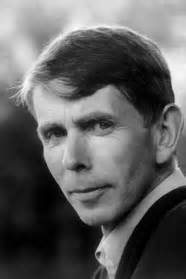A Quote by Ronald Frame
The gift of a writer as good as Dickens is not to explain everything; that way, the reader has, in terms of their imagination, somewhere to go.
Related Quotes
It is easier for the reader to judge, by a thousand times, than for the writer to invent. The writer must summon his Idea out of nowhere, and his characters out of nothing, and catch words as they fly, and nail them to the page. The reader has something to go by and somewhere to start from, given to him freely and with great generosity by the writer. And still the reader feels free to find fault.
Explaining is a difficult art. You can explain something so that your reader understands the words; and you can explain something so that the reader feels it in the marrow of his bones. To do the latter, it sometimes isn't enough to lay the evidence before the reader in a dispassionate way. You have to become an advocate and use the tricks of the advocate's trade.
The characters within a book were, from a certain point of view, identical on some fundamental level ? there weren't any images of them, no physical tangibility whatsoever. They were pictures in the reader's head, constructs of imagination and ideas, given shape by the writer's work and skill and the reader's imagination. Parents, of a sort.
As a reader, when the writer gets sentimental, you drift, because there's something fishy going on there. You recognize a moment that's largely about the writer and the writer's own need to believe in something that might not in fact exist. As a reader, you think, 'Where did the story go? Where did the person I'm reading about go?'
Good writing, and this is especially important in a subject such as economics, must also involve the reader in the matter at hand. It is not enough to explain. The images that are in the mind of the writer must be made to reappear in the mind of the reader, and it is the absence of this ability that causes much economic writing to be condemned, quite properly, as abstract.
I think reading is a gift. It was a gift that was given to me as a child by many people, and now as an adult and a writer, I'm trying to give a little of it back to others. It's one of the greatest pleasures I know." Ann M. Martin
"Never write anything that does not give you great pleasure. Emotion is easily transferred from the writer to the reader.
How often I have tried to tell writing students that the first thing a writer must do is love the reader and wish the reader well. The writer must trust the reader to be at least as intelligent as he is. Only in such well wishing and trust, only when the writer feels he is writing a letter to a good friend, only then will the magic happen.






































